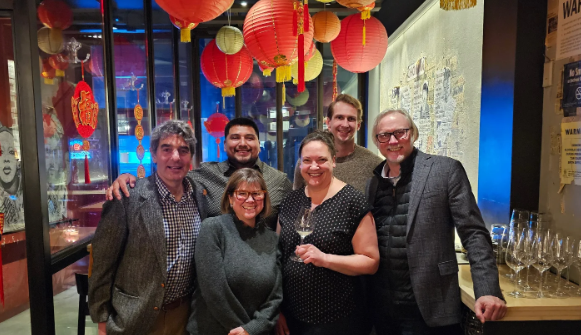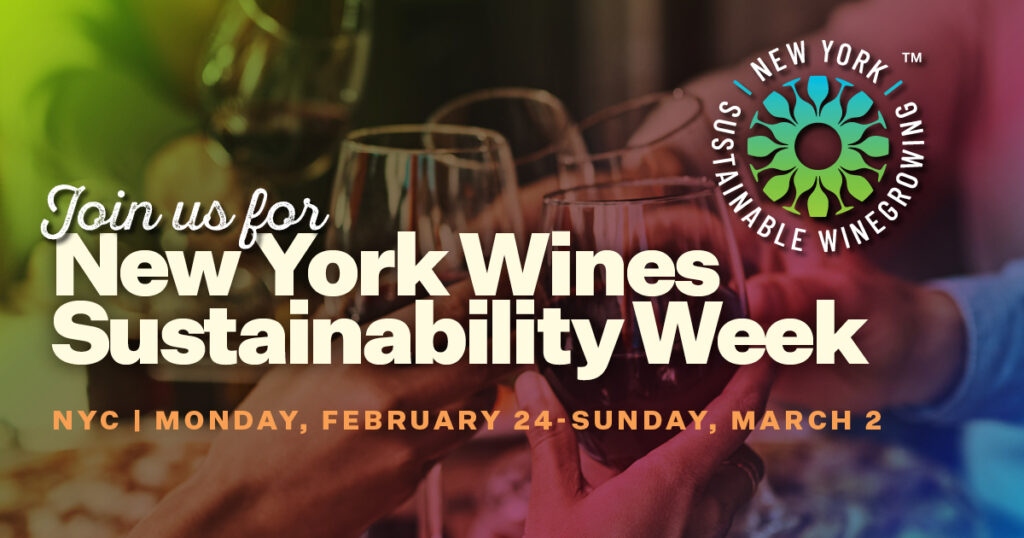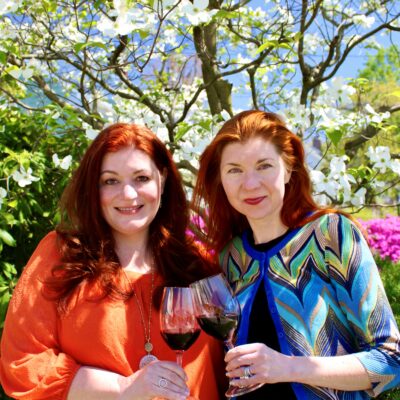
In the last few years, New York wineries have been able to officially begin the process of declaring their vineyards as environmentally, socially and economically sustainable. For many winemakers, farming and producing wine sustainably has been foundational to their business from the get-go.
“Long before the current sustainability program existed, we shaped our business around the concepts,” says Yancey Stanforth-Migliore, co-founder and co-owner of Whitecliff Vineyard & Winery. “Our winery building was one of the first to be geothermal in the state, and sourcing plant-based fining agents to take the place of gelatin and isinglass. Most recently, we developed a second vineyard close to the Hudson River, installing irrigation piping both for irrigation when needed, and to apply precision fertilizer to reduce the risk of runoff pollution into the river.”
But participating in the New York Sustainable Winegrowing program allows Whitecliff and the other participating wineries to communicate their dedication efficiently, in a way that wine lovers can easily understand.
This is key because sustainability is something that more and more wine lovers are looking for when shopping the wine aisles. Despite inflation and cost of living pressures, consumers are willing to spend almost 10% more on sustainably produced goods, according to a recent PwC Voice of the Consumer Survey. Almost three-quarters (74%) of consumers are also more likely to trust a brand that actively promotes its environmental merits, according to Tastewise Insights.
“The Sustainable Winegrowing program has certainly prompted us to think through new ways to incorporate sustainability throughout our business,” Stanforth-Migliore says. “But most importantly, it has given us a way to prove the seriousness of our efforts to the public through independent certification.”
The New York Wine & Grape Foundation’s Sustainable Winegrowing program utilizes a third-party certification program that verifies the growers are using best practices to ensure environmental, social and economic sustainability. The initiative lays out 144 action items designed to boost soil and water safety, conserve energy, enrich the ecosystem and ensure social equity.
This week, Sustainable Winegrowing Program participants are formally introducing the fermented fruit of their green labor to wine lovers in a series of events in retail and restaurant settings.
For serious wine enthusiasts like Heather Muriello, a WSET 2-certified wine content creator and educator who aims to make wine approachable and engaging, New York Wines Sustainability Week represents an ideal opportunity for everyone in and supporting the industry.
“These wines are crafted with a long-term vision in mind, prioritizing quality and responsibility,” Muriello says. “Knowing that makes them more appealing to me as a consumer, and I’m always excited to support and promote wines that align with my values.”
New York Wines Sustainability Week kicked off February 24 and will run through March 2 in New York City.
There will be restaurant events (including a dinner at New American wine bar Cora on February 27 with representatives from Wölffer Estate Vineyards, Boundary Breaks and Milea Estate Vineyard on hand to introduce their estate and wines, and a casual and fun dumpling and wine pairing event in the afternoon on March 2 at Pinch Chinese), plus tastings at retailers like 67 Wine, Astor Wines & Spirits and Flatiron Wines & Spirits with participants from the Sustainability Program pouring their wines.
Muriello is hoping to hit several and pad out her already impressive list of pioneering New York sustainable wineries.
“A few of my favorites include the crisp, refreshing Finger Lakes Riesling and the unique, earthy reds from Long Island,” she says. “Fox Run, Ravines and Wölffer have shaped my perspective on New York wine. Supporting sustainable wines ensures that we can continue to enjoy these wines for generations to come, without compromising the health of our planet or the people who work in the industry.”
If you can’t make any of the events this week, don’t worry. There will be plenty of other opportunities in wine country to sip sustainably this spring.
“Every weekend in March we’ll pair a selection of our wines with items ranging from pipe tobacco to tangerines to help people recognize and understand the aromatic elements in the wines,” Stanforth-Migliore. “We will also participate in our wine train, the Shawangunk Wine Trail’s Earth Day weekend tasting on April 26 and 27.”
Watch this space for the scoop on other events and opportunities soon.


